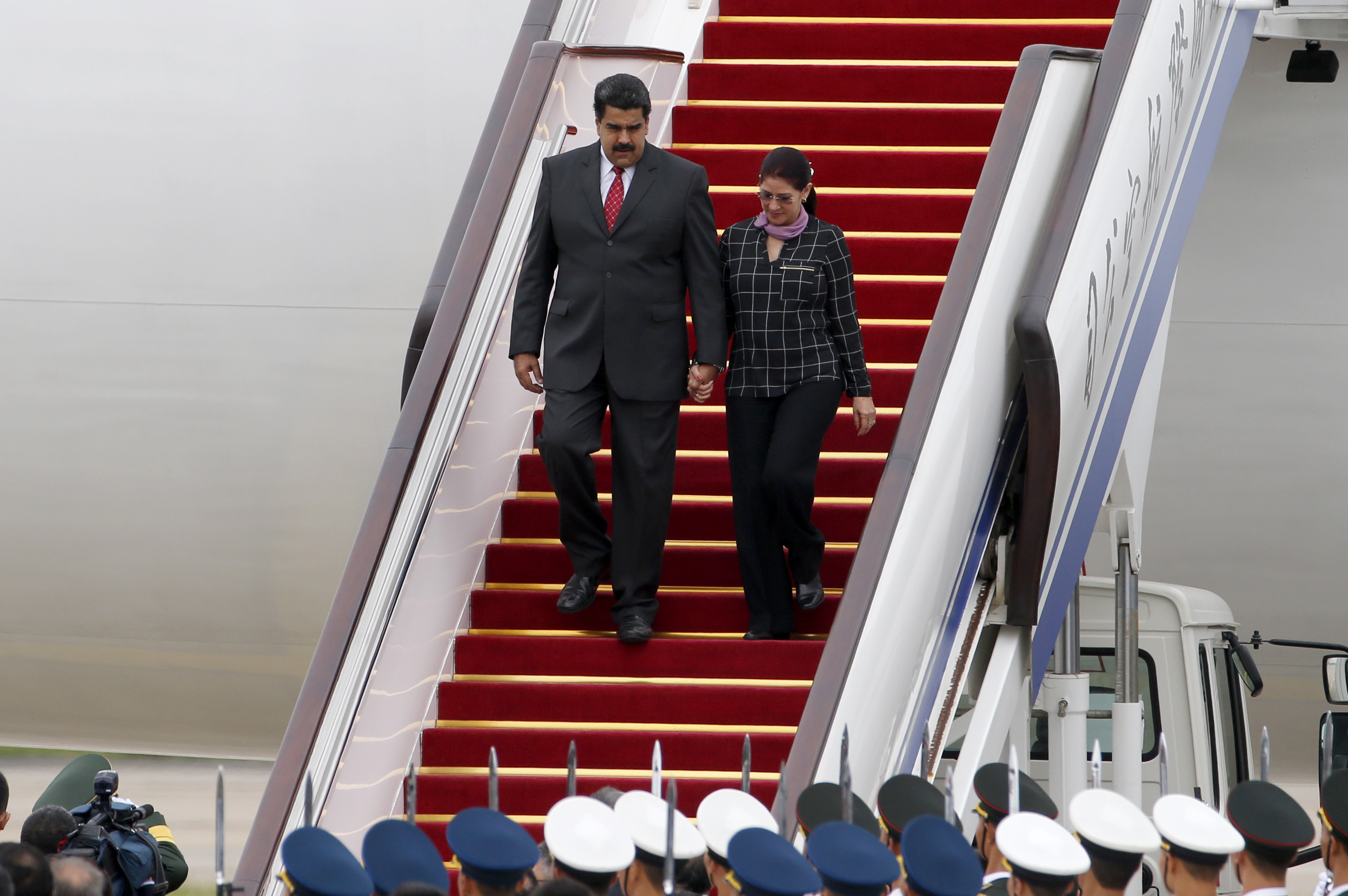The United States government confiscated a plane previously used by Venezuelan President Nicolás Maduro on Monday, citing that its acquisition violated US sanctions against the country. As reported by CNN and confirmed by the Department of Justice, the aircraft was seized in the Dominican Republic and transported to Florida.
"This morning we seized an aircraft that we allege was illegally purchased for $13 million through a shell company and smuggled out of the United States for use by Nicolás Maduro and his allies," stated Attorney General Merrick B. Garland in an official statement. "The Department of Justice will continue to pursue those who violate our sanctions and export controls to prevent them from using US resources to undermine the national security of the United States," he added.
"This seizure sends a clear message: aircraft illegally acquired from the United States for the benefit of sanctioned Venezuelan officials cannot simply fly off into the sunset," added Matthew S. Axelrod, Under Secretary of Commerce for Export Control at the Department of Commerce. "No matter how fancy the private jet or how powerful the officials are, we will work tirelessly with our partners here and around the world to identify and return any aircraft illegally smuggled out of the United States."
The aircraft, not equivalent to the famous Air Force One, was previously used by President Maduro and his regime but has more recently been used by others. While in the Dominican Republic, it had been on the radar of the Department of the Interior, Commerce, the Bureau of Industry and Security, and the Department of Justice.
In the past, luxury cars and various assets have been repeatedly seized. It is a Dassault Falcon 900 that had been in the Dominican Republic since May 19, parkedat the Higüero-Doctor Joaquín Balaguer International Airport. Local authorities, who have collaborated with US authorities throughout, cited documentation issues and a judicial decision without providing details.
A similar incident occurred a few months ago in Argentina involving another plane, sparking a public clash between Maduro and Javier Milei. "They stole our plane (...). The bandit Milei stole Venezuela's plane, Javier Milei, the hero of the far-right," declared Hugo Chávez's heir in a televised statement. "He acts crazy or is crazy or both at the same time," he added, referring to the Argentine leader.
In that case, it was a Boeing 747 that had been sold by the sanctioned Iranian airline Mahan Air to the South Aerocargo Transport Company (Emtrasur) - a subsidiary of the Venezuelan state airline CONVIASA. It had been immobilized in Buenos Aires for almost two years by a court order, and in the spring, the US seized it.
In August 2019, the President issued Executive Order 13884, prohibiting US citizens from engaging in transactions with individuals who have directly or indirectly acted on behalf of the Venezuelan government, including members of the Maduro regime. To protect US national security and foreign policy interests, the Department of Commerce also imposed export controls on items intended, in whole or in part, for Venezuelan military or military intelligence end-users.
According to US investigations, in late 2022 and early 2023, individuals close to Maduro allegedly used a shell company based in the Caribbean to conceal their involvement in the illegal purchase of the aircraft from a company based in the Southern District of Florida. The plane was then illegally exported from the US to Venezuela in April 2023. "Since May 2023, the Dassault Falcon, with registration T7-ESPRT, has flown almost exclusively to and from a military base in Venezuela and has been used for the benefit of Maduro and his representatives, including transporting Maduro on visits to other countries," stated the release published this Monday.
At this moment, the decision is also a maneuver to exert additional pressure on Maduro to release the minutes of the presidential elections. Earlier this year, the US re-imposed sanctions on Venezuela's oil and gas sector in response to Maduro's government's refusal to allow "inclusive and competitive elections" to take place. The vast majority of Western democracies do not accept the Bolivarian government's declaration of victory and demand evidence following opposition fraud allegations, which have published millions of polling station records.
The situation in the country is a recurring issue in US domestic politics, posing a challenge for the Biden Administration, which had slightly eased pressure on Caracas in 2023. In October of that year, Biden temporarily lifted some sanctions on Venezuela's oil and gas to persuade Maduro to honor the agreements signed in Barbados between Chavismo and the opposition for free elections. The condition to extend these measures was for Caracas to allow all non-Chavista candidates to run. As this did not happen, the sanctions were reactivated in April 2024.
Venezuela is also a recurring topic for Donald Trump, who often uses it as an example of failed immigration policy in his rallies and speeches, claiming that the streets of Caracas are now much safer than any US city because all its criminals have been sent north and are now a national threat.
Last week, State Department spokesperson Matthew Miller stated that the National Electoral Council's continued refusal to uphold international and Venezuelan transparency standards is an "unacceptable violation" of laws. The Latin American government responded that it owes "no explanations" to anyone, especially the US, and criticized the "despicable habit of meddling in matters that are not their concern," in the words of Foreign Minister Yván Gil.
